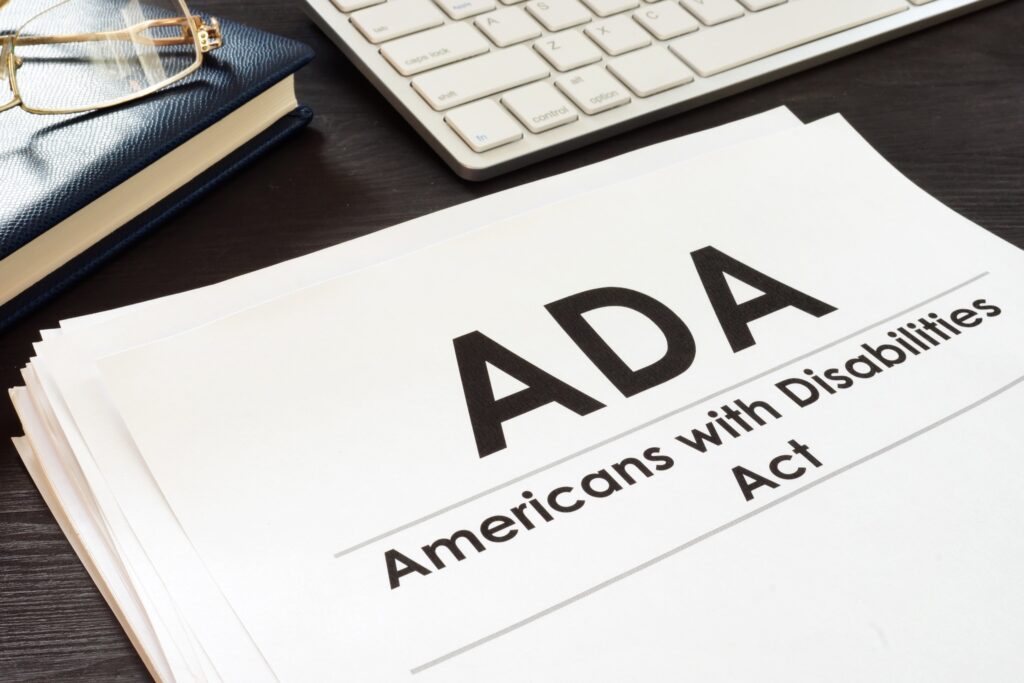Twenty five years ago, before the Americans with Disabilities Act, the United States was a very different place. Cell phones were roughly the size of a cinder block, the Internet had yet to be invented, and rarely was it easy for disabled people to access public buildings, bathrooms, and transportation.
That all changed on juillet 26, 1990 when the Americans with Disabilities Act (ADA) took effect and made it illegal to discriminate against people with disabilities in seeking employment and from using public transportation or public accommodations, and telecommunications
Thanks to the ADA and businesses like Next Day Access, things like Rampes pour fauteuils roulants, braille on elevator signs, handicap accessible bathrooms, Barres d'appui, sign language interpreters, and closed captioning are all quite commonplace.
President Barack Obama celebrated the anniversary of the ADA at the White House earlier this week and said, “Thanks to the ADA, the places that comprise our shared American life – schools, workplaces, movie theaters, courthouses, buses, baseball stadiums, national parks – they truly belong to everyone.”
But while some have hailed the ADA as a piece of culture-changing civil rights legislation, others, including many disabled individuals, point out the need to do more. President Obama was among those voices calling for rededication to interests originally set out in the ADA. “We all know too many people with disabilities are still unemployed — even though they can work, even though they want to work, even though they have so much to contribute,” he said.
According to a report published by the Department of Labor, just over a third of working-age people with disabilities were employed between 2010-2012 and are often underrepresented in management and professional or technical jobs.
“Unfortunately, the employment section of the ADA has not produced the intended results of getting more people with disabilities in the workplace,” wrote Catherine Raggio, the former Secretary of the Maryland Department of Disabilities from 2007-2014.
Meanwhile, reports of inaccessible hospitals, bathrooms, train stations, and other public facilities remain quite common too, but at least the ADA has provided a form of legal redress of disabled individuals to pursue if needed.
If you or someone you know has a disability and is interested in learning more about accessibility products or home accessibility solutions, consult your local Next Day Access franchise and call today for affordable pricing options.





